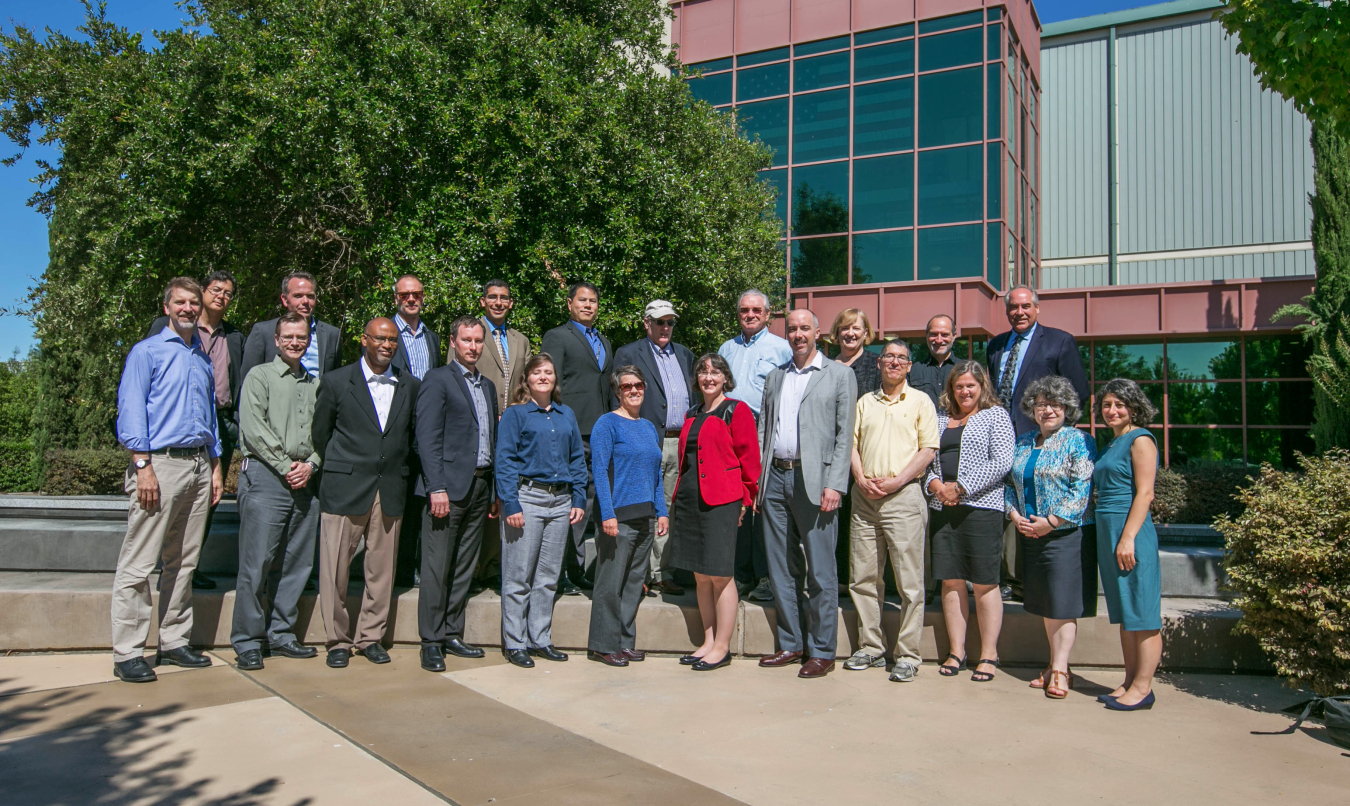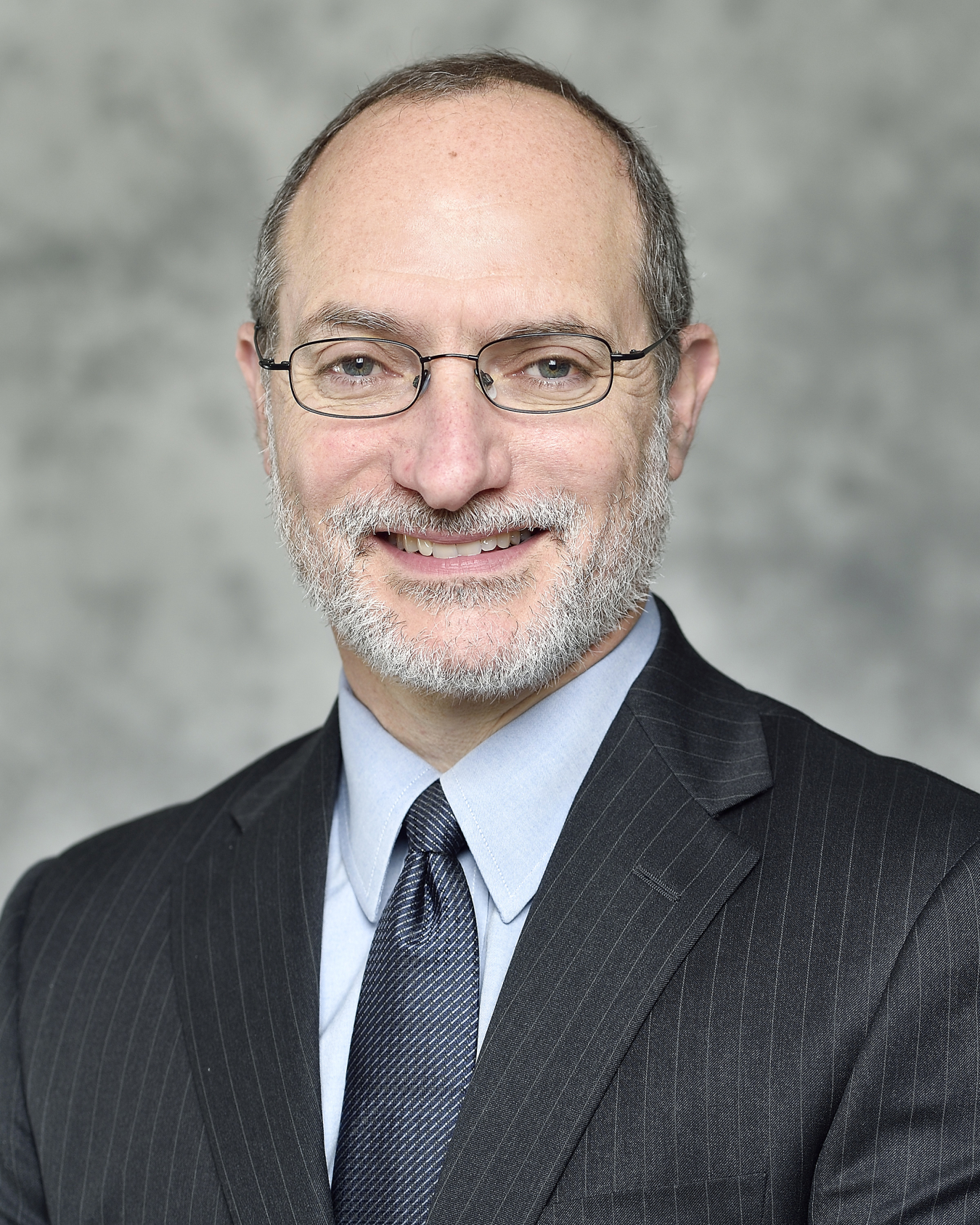In parallel with the 4th Big Ideas Summit, we celebrated the Oppenheimer Science and Energy Leadership Program’s first cohort and welcomed 15 new emerging leaders from across the country.
March 17, 2017
In parallel with the 4th Big Ideas Summit, we celebrated the Oppenheimer Science and Energy Leadership Program’s first cohort and welcomed 15 new emerging leaders from across the country.
The Oppenheimer Science and Energy Leadership Program (formerly the Energy Sciences Leadership Group) was developed to introduce the next generation of Department of Energy leaders to the breadth and depth of the National Laboratory system and expose them to the broader scientific, policy, and energy ecosystem within which the Labs operate. The inaugural cohort members hailed from nine National Labs, four universities, held varying positions from senior manager to Associate Laboratory Director, Chief Operating Officer or professor.
Accompanied by an esteemed group of Mentors, the cohort visited seven of the 17 National Laboratories and Washington, DC in nine months. Throughout their visits, they met with senior leadership and scientific staff to learn about the unique capabilities of each Lab, how they operate as a system, how they navigate public-private partnerships, and how their work supports the United States’ global leadership in science and technology. Their year culminated with presentations of their Think Pieces to the National Laboratory Directors and Chief Research Officers at the Big Ideas Summit.
Shaped by their meetings with senior leaders, observations, interviews, and surveys, the cohort’s Think Pieces explored the following themes focused on four dimensions of the Labs as a network:
Workforce-of-the Future
How can DOE and the National Labs attract and retain talented leaders to successfully achieve its mission?
CLARITI (Creating Links Across Research Institutions for Teaming Intelligently)
With over 20,000 scientists spread across 17 Laboratories and highly diverse areas of expertise, how can DOE and the National Laboratories build more effective teams?
Regional Energy Centers for Adaptation and Sustainable Transition (RECAST)
Could the National Labs provide broader scientific and technical support to cities, counties, regions and states through an integrated regional approach?
International Partnerships
Mindful of its complex mission areas and security interests, how can DOE and the National Labs develop a more integrated strategic approach to international engagements and partnerships?
The OSELP cohort provided the Chief Research Officers and National Laboratory Directors some insightful observations and ideas about how the DOE and the Labs could be more effective and impactful as a system. What was most impressive was seeing how the members of the inaugural Oppenheimer Science and Energy Leadership Program had themselves become the foundation for a network of thoughtful and engaged future leaders.
The cohort closed their presentation with remarks about how the program had impacted each of them and gave a warm and heartfelt welcome to the incoming cohort. The 2017-2018 Oppenheimer Science and Energy Leadership Program cohort includes 15 exceptional and accomplished leaders from nine National Laboratories and two universities, representing disciplines ranging from geochemistry, computer science, nuclear engineering and nonproliferation, operations, and molecular engineering.
DOE hopes to make the Oppenheimer Science and Energy Leadership Program an enduring leadership development program, bringing together early and mid-career participants drawn from the National Labs, industry, and academia.
In their own words
Observations from the 2016-2017 OSELP cohort on the impact of this experience:
Daniel Sinars, Sandia National Lab
“An engineer at Google-X explained that he went to work there because he realized ‘it takes a billion dollars of capital to do anything worthwhile.’ My immediate reaction was that collectively the DOE network works with billions of dollars annually and we do amazing and worthwhile things every day!”
Amy Marschilok, Stony Brook University
“We have seen awesome facilities and heard about transformative science through this program. What has made this journey so special is the remarkable people who have shared their insight along the way.”
Michael Willardson, Stanford University/Stanford Linear Accelerator Center
“As a relatively new member of the national lab system, this program has been an invaluable and accelerated indoctrination to the scope and complexity of the labs. Despite that complexity, this program has taught me that I, as an individual, have the opportunity and the ability to affect the system in positive ways.”
Daniel Schwartz, University of Washington
“I was awed by the scale of scientific and engineering challenges the DOE labs can tackle on behalf of the nation’s security and prosperity. My past DOE experiences have been much like the parable of the blind man who touches a small part of the elephant and never comprehends its enormity.”
Johney Green, National Renewable Energy Laboratory
“Even though I had visited several of the National Labs in the past, I did not have a full appreciation for the breadth of capabilities across the complex. This program has helped me gain a deeper understating of the different missions of the Labs and has broadened my perspective on the different research models and strategies that can be used to successfully advance those missions."
Lia Merminga, Stanford Linear Accelerator Center
“Over the past year, the diverse and compelling mission of the DOE unfolded in front of our eyes, through stories told by a brilliant, deeply knowledgeable and passionate workforce, and through visits to best-in-the-world facilities with cutting edge infrastructure, all poised to transform science and the world we live in. I have been amazed and inspired, and deeply grateful for this experience.”
Howard Yuh, Princeton Plasma Physics Laboratory
“DOE’s mission is embodied in its National Labs where science and technology is born. When united under a critical mission, provided sufficient resources, and led with visionary leaders, the ingenuity, talent, and experience I’ve seen at the National Labs can truly make our nation safer and more prosperous.”
Charles Black, Brookhaven National Laboratory
“I was struck by the pervasive sense of service and purpose running throughout the Labs, the DOE, and the government. This year we met so many intelligent, highly accomplished, and extremely capable people who are dedicated to serving our country and the world. I found it very inspiring.”
Dawn Wellman, Pacific Northwest National Laboratory
“This program provided an outstanding forum to gain a broad understanding of the vastly different strategic approaches and execution models that each laboratory uses, the underlying drivers, and an identify synergies and opportunities for improvement within the laboratory network through best practices. Additionally, having worked extensively with the larger, multipurpose laboratories across the complex, this program greatly improved my awareness and understanding of the value the smaller laboratories within the complex bring to the mission. The knowledge we have gained through this program is invaluable for our group of emerging leaders and our ability to help move the complex forward and address the nation’s challenges.”
Rob McQueeney, Ames Laboratory & Iowa State University
“Even though I spent most of my career in the DOE lab system, I walked away with a greater appreciation for the integration of Labs, government, and industry, as well as a newfound inspiration for the DOE mission. My view of what is possible has expanded tremendously.”
Nancy Haegel, National Renewable Energy Laboratory
“A growing network of emerging leaders, connected by trust and shared experience, will be a great resource to the labs, DOE and the nation. This network will serve us well in reaching across boundaries to solve problems and generate exciting and compelling directions for the future. Thanks for this opportunity and I look forward to doing my part.”
Trenth Northen, Lawrence Berkeley National Laboratory
“I was struck by the breadth of positive impact that the National Lab System has on the national security and the scientific, technical and economic competitiveness of the United States. I was extremely impressed by the outstanding leadership, deep commitment, and best-in-the-world facilities throughout the system and feel proud to be part of the Lab system.”
Michael Jaworski, Princeton Plasma Physics Laboratory
“Participation in this group has been both inspirational and challenging. The leadership within DOE, the national labs, and in other federal agencies have been incredibly generous with their time and all exhibit a dedication to service that is inspiring. It is a challenge to follow in these footsteps with the same dedication.”
Timothy Meyer, Fermi National Accelerator Laboratory
“The creation of this program was an inspiration and a message: DOE leadership investing in the labs and the future, and the program itself has been even more powerful for me because of the pervasive and personal commitment to excellence, integrity, and public service in everyone we’ve met.”
Adam Cohen

Dr. Adam Cohen, Former Deputy Under Secretary for Science and Energy at the U.S. Department of Energy
Dr. Adam Cohen served as the Deputy Under Secretary for Science and Energy at the U.S. Department of Energy (DOE) from October 2015 through May 2017. In the role, he oversaw the day-to-day operations of the Office of the Under Secretary for Science and Energy (US/S&E). The office was created by Secretary of Energy Ernest Moniz to closely integrate DOE’s basic science, applied research, technology development, and deployment efforts. As Deputy Under Secretary, he supports DOE’s offices of Electricity Delivery and Energy Reliability, Energy Efficiency and Renewable Energy, Fossil Energy, Indian Energy Policy and Programs, Nuclear Energy, Science, and Technology Transitions. In total, these programs steward the majority of DOE’s National Laboratories (13 of 17).
Dr. Cohen has more than 30 years of experience in management of research and development, strategic planning and operations at Princeton (PPPL), Argonne National Laboratory (ANL), and the Department of Energy. As Deputy Director for Operations at PPPL, he was responsible for both the engineering and operations function at PPPL, including design efforts, project management, human resources, financial activities, outreach, ES&H and applied research activities. He also served on the NJ DEP Oyster Creek Oversight Panel and on the Department of Energy’s Laboratory Operations Board. Previously, he served as senior advisor to the DOE Under Secretary for Science for nuclear energy programs, and at Argonne as Chief Operations Officer, as the head of environment, safety and health, as a nuclear facility manager, and as a researcher/principal investigator on nuclear fuels and materials. Earlier in his career, he spent four years in the U.S. Navy as a submarine officer, and he worked at Babcock & Wilcox manufacturing nuclear fuel for research reactors.
Dr. Cohen earned his Bachelor’s in Engineering from Columbia University, his M.B.A. from the University of Chicago, and his Ph. D. in Materials Science from Northwestern University.

